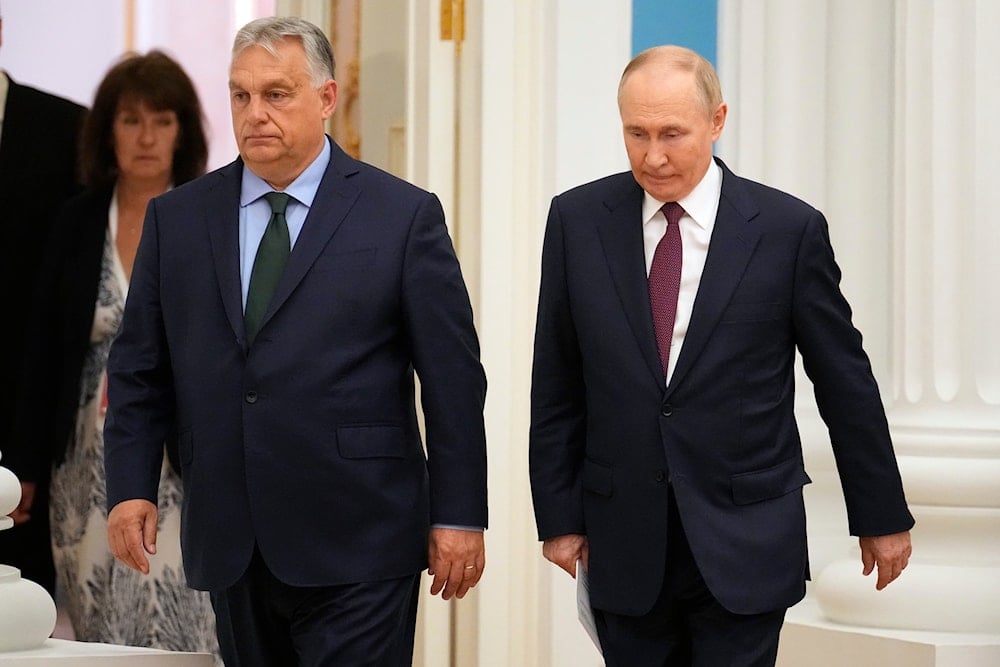EU legal service says Orban's Moscow visit violates Bloc treaties
The EU's legal service informed member states that Orban's actions violated treaties prohibiting any measures that could jeopardize the Union's objectives.
-

Russian President Vladimir Putin, right, and Hungarian Prime Minister Viktor Orban walk to attend a joint news conference following their talks in the Kremlin in Moscow, Russia, Friday, July 5, 2024. (AP)
The European Union's legal service has notified member states that Hungarian Prime Minister Viktor Orban's recent visit to Moscow and his meeting with Russian President Vladimir Putin breached EU treaties, according to the Financial Times.
Orban visited Russia last week on a peace mission that began with his earlier visit to Kiev and continued to China. Sources familiar with the matter told the newspaper that the EU's legal service informed member states on Wednesday that Orban's actions violated agreements that prohibit any measures "which could undermine the achievement of the Union's objectives."
At the same time, the Hungarian leader is reported to have violated a provision that mandates all members to conduct foreign policy "unreservedly in a spirit of loyalty and mutual solidarity."
The newspaper also reported, citing sources familiar with the discussions, that during the NATO summit in Washington on Wednesday, European leaders discussed drafting a joint letter to Orban. The letter aims to clarify their objections to his actions and demands that he cease his foreign policy initiatives.
Read next: EU 'centimeters away' from war with Russia: Orban
Another suggestion reportedly under consideration is a special meeting of EU affairs ministers dedicated specifically to this matter. According to diplomats speaking to the Financial Times, many EU members have discussed the possibility of boycotting informal ministerial meetings scheduled to be held in Hungary during its presidency.
A smaller group of countries has initiated informal discussions on leveraging the EU treaty to restrict Orban's actions during Hungary's presidency.
Some EU officials have privately suggested the possibility of removing the presidency from Budapest.
Earlier this week, media reports indicated that Orban had sent confidential letters to European Council President Charles Michel and other EU leaders outlining his recent visits to Kiev, Moscow, and Beijing. Orban reportedly stated that Russia and China anticipate peace talks between Moscow and Kiev to commence by the end of this year.
Orban's Kremlin visit
During his visit, Orban and Putin discussed various issues, however, headlining the talks was the ongoing crisis in Ukraine. Generally, the EU has boycotted Russian government officials and on this occasion said that Orban threatened to undermine the 27-member bloc's stance on the conflict.
The Russian President emphasized the positive nature of the talks, saying he hopes that the two parties will have "the opportunity to exchange views on bilateral relations in this difficult situation." Putin also said that he looks forward to "talk about the prospects of the largest European crisis, I mean in the Ukrainian direction."
"I am ready to discuss [a peaceful settlement to the conflict] with you and explain some of the nuances. I hope you will also introduce me to your position and that of your European partners," Putin was quoted as saying.

 3 Min Read
3 Min Read









